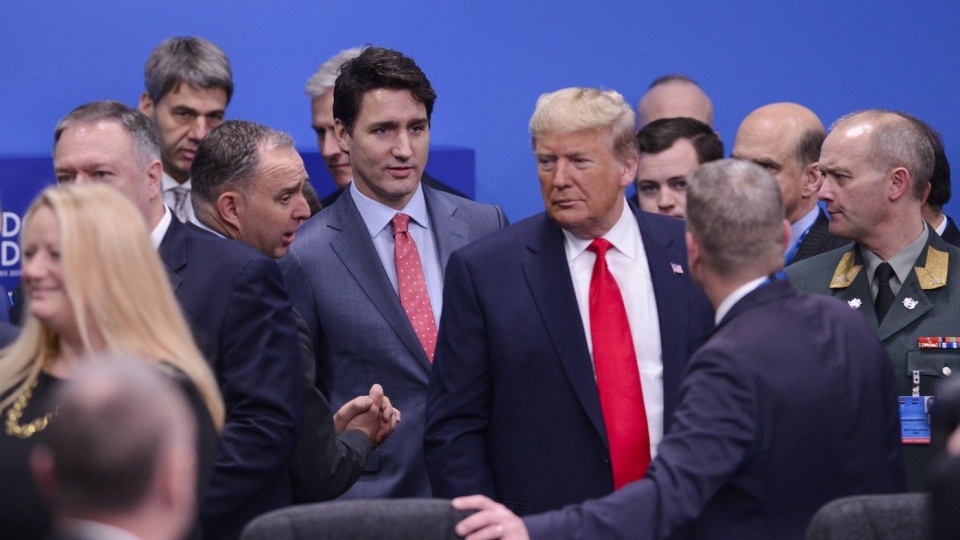Canadian officials are reacting strongly against President-elect Donald Trump’s proposed tariffs, with the Premier of Ontario labeling his comparison of Canada to Mexico as “the most insulting thing I’ve ever heard.” Trump plans to implement tariffs on goods from Canada, Mexico, and China shortly after taking office in January, which he claims will address illegal immigration and drug issues, including a proposed 25% tax on imports from Canada and Mexico.
In response, Ontario Premier Doug Ford expressed his dismay, stating, “To compare us to Mexico is deeply insulting. It feels like a betrayal from a friend and ally.” He warned that Canada may have no choice but to retaliate.
In anticipation of these threats, Prime Minister Justin Trudeau is set to hold an emergency meeting with provincial leaders. The Canadian dollar has already experienced significant decline in the foreign exchange markets. After discussing the matter with Trump, Trudeau remarked on the strong ties between the two nations and expressed optimism about working together on common challenges.
Trump’s comments came as he criticized the flow of illegal migrants, ignoring that apprehensions at the U.S.-Canada border are minimal compared to those at the southern border. Canadian Industry Minister François-Philippe Champagne emphasized the need to distinguish between the two borders: “We shouldn’t confuse the Mexican border with the Canadian border.”
Recent statistics show a stark difference, with the U.S. Border Patrol recording 56,530 arrests at the Mexican border in October, compared to 23,721 at the Canadian border for the previous year. Canadian Immigration Minister Marc Miller pointed out that these figures represent merely a typical weekend at the Mexican border and indicated Canada’s consideration of various border control measures.
Quebec Premier François Legault acknowledged the more severe situation at the Mexican border but deemed Trump’s concerns valid, noting an uptick in illegal crossings from Canada. He cautioned that a 25% tariff could result in tens of thousands of job losses and stressed the necessity of avoiding a trade war.
Canada is profoundly reliant on trade, with 77% of its exports going to the U.S. Each day, nearly $3.6 billion worth of goods and services cross the border. Significant portions of U.S. crude oil and electricity imports come from Canada, which also serves as a crucial supplier of steel, aluminum, and uranium, as well as critical minerals for U.S. national security.
Deputy Prime Minister Chrystia Freeland highlighted the mutual dependency between the two nations: “Canada is the largest market for the U.S. globally, surpassing China, Japan, the U.K., and France combined.”
In the past, when Trump enacted higher tariffs, countries retaliated; Canada did so in 2018 by imposing billions in duties on U.S. goods. Tariffs were often politically motivated, with some products chosen for their minimal economic impact but significant political symbolism.
Now, Canadians are particularly concerned about potential tariffs on the auto industry, which operates on a highly integrated basis. Automotive parts produced in Canada often end up in U.S.-manufactured vehicles sold back in Canada. Flavio Volpe, head of Canada’s Automotive Parts Manufacturers Association, noted the intricate interdependence: “Imposing tariffs would be like trying to separate the yolks from the whites in an omelet. It simply can’t be done.”
Such tariffs could jeopardize the integrity of the 2020 trade agreement, which replaced NAFTA and was significantly influenced by Trump, with a review scheduled for 2026.
Credit: ABC News





